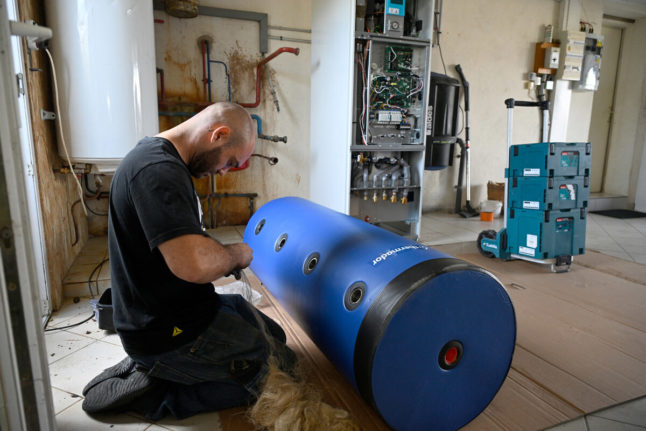The tax implications of an extension, or a swimming pool, to your property in France may not figure highly in many people’s calculations as they work out whether they can afford expensive home improvements.
Additions to your annual taxe foncière – and, for second homes, taxe d’habitation – bills are likely to apply.
Taxe foncière is calculated according to a complex formula that takes into account the rentable value of your home and multiples it by a rate set by your local authority – and one of the routinely welcomed side-effects of adding another bedroom, or a conservatory, or a pool is to do increase a property’s value.
Shed tax
But there’s something else to take into account – the one-off taxe d’aménagement, known as the ‘garden shed tax’. This tax is levied on building projects that extend or add a new amenity to a property. We’re talking home extensions plus swimming pools, garages, sheds, conservatories and similar.
Basically, if your home improvement project requires some form of building permission – a permis de construire or déclaration préalable de travaux – you’re likely to be in ‘garden shed tax’ territory.
Areas subject to the tax must be at least five metres squared, with – if included – a ceiling height greater than or equal to 1.8m.
How it’s calculated
The value of the project is calculated either per unit or per metre squared of surface area – as long as the additions to a property has a surface area of at least 5 square metres. Where applicable, they must have a ceiling height greater than or equal to 1.8m.
Meanwhile, fixed values are placed on the following:
- swimming pool (€258 / metre square);
- ground-mounted photovoltaic panels (€10 / msq);
- wind turbine over 12m high (€3,000);
- outdoor parking areas (€3,000 per space, rising to €6,000 per space upon deliberation by the local authority).
- pitch for tents, caravans and mobile leisure homes (€3,000);
- Chalets and bungalows: €10,000 per pitch.
Pergolas, arbors and terraces are not subject to this tax.
Municipal, departmental and regional percentages rates are then applied.
The annual rate of the municipal share generally varies from 1 percent to 5 percent. It may be higher.
The annual departmental share rate is limited to a maximum of 2.5 percent, while the rate of the regional share for the Île-de-France Regional Council is a maximum of 1 percent but varies department by department.
Value rise
The base value flat-rate rose 3.4 percent on January 1st, lower than the 8 percent increase in 2023, and the 7 percent jump in 2022.
The flat-rate value for 2024 is:
- €1,036 in Île-de-France;
- €914 elsewhere.
The government has set up an online taxe d’aménagement simulator, but its calculations still appear to be based on 2023 rates. At least you’ll get an idea.
You must declare the elements necessary to calculate the tax simultaneously with your property declaration, within 90 days of completion of the work.
To do this, go to your account on the government’s tax website (impots.gouv.fr) and click on the Biens immobiliers tab. Use the formulaire de déclaration des locaux d’habitation form.
If your bill is less than €1,500, you are expected to pay in one instalment. If it’s greater than €1,500, you can pay in two instalments: the first within 90 days and the second nine months after completion of the work.
Are there exemptions?
Commonly, small constructions with a surface area of less than 5m2 are exempt, because they are not subject to planning authorisations.
Meanwhile, some local authorities also exempt larger constructions, up to 20m2, if the are financed with a zero-interest loan. And many may also deduct 50 percent from the flat-rate value for certain extensions to main buildings.
What if I don’t declare?
Don’t think you can get away with not declaring your extension to tax authorities.
The French inland revenue has been working with Google to develop software that analyses satellite pictures and compares them with land registry records to locate undeclared property improvements that may have gone under the radar.
It has also trialled using existing tools, such as Google Maps. In 2017 officials found some 300 undeclared swimming pools in Marmande, a town of around 20,000 people in Lot-et-Garonne, alone, allowing tax authorities to recoup €100,000 in unpaid taxes.
Two years later, 3,000 undeclared pools were discovered via Google Maps tech along the Atlantic coast and Côte d’Azur, and the Drôme.



 Please whitelist us to continue reading.
Please whitelist us to continue reading.
Member comments